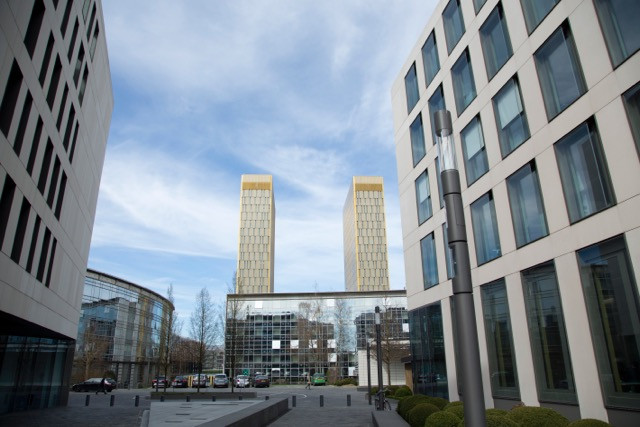That is one finding of an audit of the European Court of Justice and EU General Court issued by the European Court of Auditors.
The ECA, also based in Kirchberg, conducts checks on how efficiently EU funds are spent.
“Cases can be brought before either Court in any of the 24 official languages of the EU,” according to the report “Performance review of case management at the Court of Justice of the European Union”, released on 26 September. However, “the judges deliberate in French.”
The ECA report stated that: “Language practices directly impact on the judicial activity of the CJEU [both the ECJ and EU General Court]”.
“The use of French, as the only deliberation and de facto working language” requires most documents to be translated into the language of Voltaire, the ECA explained. This can cause delays, while parties to the cases submit their official translations or when the EU’s official translation service faces a backlog.
In a reply included in the auditor’s report, the CJEU pointed out that: “EU institutions, bodies, agencies and offices are responsible for the translation of their written pleadings,” and not the court itself.
Yet the auditors said:
“We noted that between 2014 and 2016 a significant share of cases referred to the CJEU, and particularly to the General Court, had English (28%) or German (20%) as procedural language, as compared to those in French (13%). Whilst we recognize the complexity, potential impacts and sensitivity of the issue of language practices, this suggests that consideration could be given to extending the languages of deliberation of the CJEU, in particular the General Court, to languages other than French. One of the consequences would be that internal notes, preliminary reports, judgments and orders could be drafted directly in those languages. Furthermore, a certain number of procedural documents submitted in these two languages would not need to be translated into French.
They continued:
“Any consideration of a change in the language practices must however be balanced against the advantages accruing from continuing to use French as a single language of deliberation. According to the CJEU, these advantages include the avoidance of possible divergences between the legal concepts used in each of the languages chosen as language of deliberation, and the consistency by reference to prior EU case-law.”
Internal review
In February 2016, court administration officials began an internal cost-benefit analysis of changing the French-only rule. However, the auditors wrote that:
“This assessment has not yet been finalized because of the uncertainties related to the outcome of the Brexit process.”
In another reply included in the auditor’s report, the court stated:
“The choice of the language used for deliberation depends on a number of factors and is determined by considerations of efficiency. The Courts will continue their discussions on this subject in the context of their judicial autonomy, taking into account the observations made by the Court of Auditors.”
Kevin Cardiff, Irish member of the European Court of Auditors, comments on his body’s Court of Justice of the European Union report on the ECA Twitter account.
English is still likely to be a main working language when the UK leaves the EU, as the Reuters news agency observed on 26 September:
“Even when Britain ceases to be subject to its judgements, many cases will continue to involve multinational companies and many of those choose to have their pleas dealt with principally in English.”
Separately in the report, the ECA praised the ECJ’s improved efficiency in areas including IT and document management:
“These measures have contributed to reducing the average time taken to adopt judicial decisions in both Courts. For example, in 2016 the overall average duration of proceedings was 14.7 months at the Court of Justice and 18.7 months at the General Court representing a reduction of 0.9 and 1.9 months respectively as compared to 2015.”

